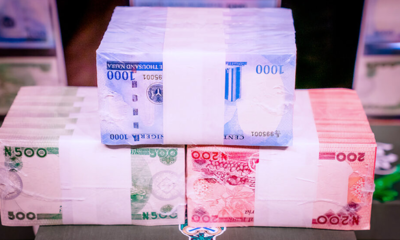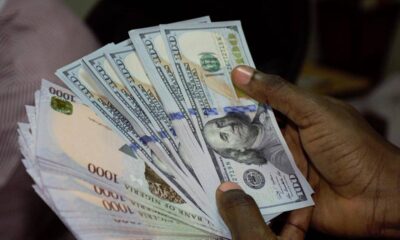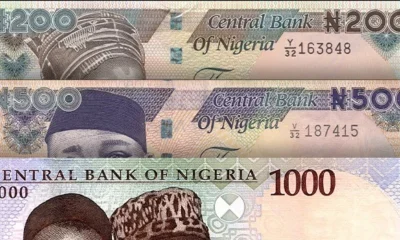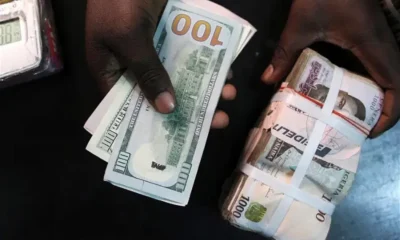Business
Official, Black Market Naira Rates Converge At N756
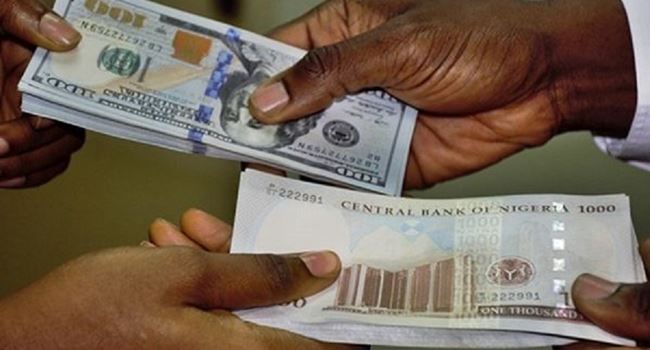
The naira’s official and black market rates converged on Tuesday, after days of volatility sparked by the Central Bank of Nigeria’s (CBN) move to allow the market freely determine the price of Nigeria’s currency.
Specifically, the naira strengthened by 1.8 per cent to N756.61 to a dollar at the close of trade on Tuesday, according to the FMDQ Exchange.
On the other hand, it hovered at N757 to a dollar in the parallel market, the executive officer of Forward Marketing bureau de change Ltd in Lagos, who compiles the parallel market data, Abubakar Mohammed, told Bloomberg.
Thus the rates practically closed the gap between them a day after the official value was 1.6 per cent weaker than the parallel market.
The convergence adds strength to President Bola Tinubu’s incoming economic plan, aimed at restoring fiscal stability and growth by eliminating subsidies, freeing up the currency and reducing debt.
Nigeria has seen a rash of reforms since Tinubu was sworn in last month to replace Muhammadu Buhari, who pursued unorthodox policies that had resulted in an almost 60 per cent spread between the official and parallel market rates.As part of the reforms, the CBN last week abolished segmentation in the FX market and collapsed all rates into the I&E window.
The naira weakened as much as 29 per cent on June 14 after the central bank lifted its controls and then briefly recovered, remaining volatile since then.
“We are allowing the market itself to set a price,” Deputy Governor, Economic Policy Directorate, CBN, Dr. Kingsley Obiora said in an interview in Rabat, Morocco on Monday.
The central bank plans to announce further measures to loosen foreign exchange controls “in the next couple of weeks” Obiora said.
Still, Nigeria is not going to set the currency totally free even now, Obiora said.
“There is no country in the world, even the US, that has a completely free float,” he said. The central bank will continue to pursue a managed float, Obiora said.
It may be too early to determine if the naira’s exchange rate to the dollar has bottomed out, Obiora said. He pointed to analysis done by the International Monetary Fund and international banks, which correctly suggested that the naira should not be as weak as the parallel market indicated, he said.
Obiora expects that the supply of foreign exchange will eventually be unlocked once the price of the dollar reaches a level that both buyers and sellers consider “fair.”
Tinubu’s early decisions since becoming president have caught the attention of investors after he scrapped fuel subsidies that cost $10 billion last year and removed the central bank governor who had been seen as the architect of the earlier unorthodox policies. Dollar bonds have gained and the stock market jumped to a 15-year high as a result of the changes.
The removal of subsidies, along with the convergence of the exchange rates will drive economic growth, especially from next year when the policies start making an impact, Obiora said following the convergence of the official and black market rates of the naira for the dollar.
Send Us A Press Statement Advertise With Us Contact Us
And For More Nigerian News Visit GWG.NG





